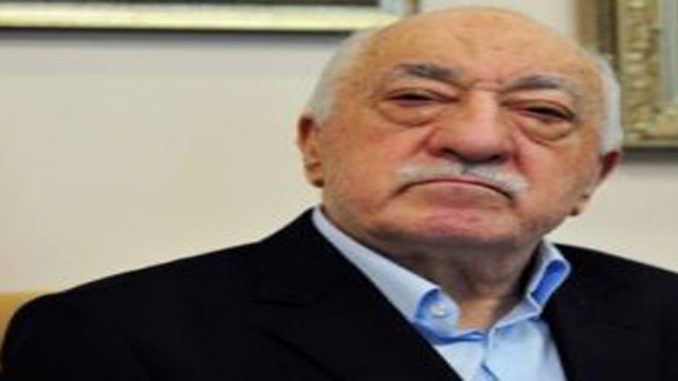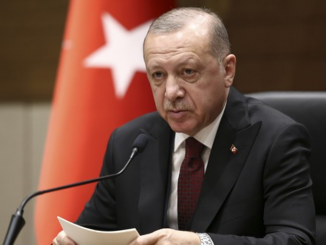
The spying techniques used by Gülenists in collecting intelligence through illegal wiretapping and other secret means suggest they were operating with the cooperation of multiple secret services under strong foreign support, according to a National Intelligence Agency (MİT) report submitted to parliament.
MİT’s comprehensive report discloses the Fethullahist Terror Organization’s (FETÖ) links with some foreign intelligence services without directly naming them. The report categorically states that FETÖ succeeded in systematically accumulating all its power over the years and expanding its influence in Turkey and across the world thanks to foreign support.
“The fact that the organization implements secrecy by using code names and operational phone lines; conducts audio surveillance on strategic institutions; carries out illegal wiretapping and produces fake evidence strengthens the idea that its activities have been developed under the umbrella of one or several intelligence services,” read the report.
The Turkish intelligence report underlines the fact that organizations like FETÖ that establish relations with the educational institutions, economic and press circles in the countries in which they are operating cannot conduct such activities without drawing the attention of the secret services. In addition, these foreign services would surely be aware of FETÖ’s efforts to raise money in these countries through donations and other charity activities.
FETÖ’s different strategies
The report alleges that FETÖ established different types of relations in different countries based on their differing political, social and economic nature. In underdeveloped and developing countries of Africa and Central Asia, FETÖ has focused on fostering good relations with prominent figures and centers of powers on the basis of financial interests.
FETÖ has applied a different strategy in rival countries that are ostensibly bothered by Turkey’s growing influence in the region and its improvements in the field of economy and politics. In such countries, FETÖ sought to develop its ties with the countries based on their anti-Turkish stance, the report alleged.
Socio-economically developed countries permitted FETÖ’s activities on their territories in a bid to use the organization against Turkey when necessary, MİT alleged. “Thus in some European countries, the fact that asylum requests of FETÖ members are being addressed as a top priority reveals its links with said countries.”
Although the report does not provide detail, Germany, Norway, Belgium, the Netherlands and some other European countries are known to be countries where FETÖ members’ appeals for asylum have been replied positively.
Gülen’s pro-Israel stance
The MİT report also noted the difficulties in fully revealing linkages with foreign services since the nature of the bond requires secrecy. As such, such linkages can only be inferred from an analysis of past events.
The report cited a number of incidents in which FETÖ members and FETÖ-linked institutions and persons adopted stances that would “serve foreign powers and countries,” such as during the Mavi Marmara incident of 2010 in which Fethullah Gülen slammed Turkish authorities instead of criticizing Israel for killing 10 unarmed Turkish citizens.
Other incidents in which FETÖ was active in favor or foreign intelligence services’ interests include the leaking of peace talks between MİT and some members of the outlawed Kurdistan Workers’ Party (PKK) in Oslo, the stopping of MİT trucks carrying aid to what the government claimed to be Syrian Turkmen groups, placing bugs in the working office and residence of the prime minister, killing 34 smugglers mistaken for PKK militants in 2011, calling MİT chief Hakan Fidan to provide testimony, launching a corruption case on government figures in late 2013 and, finally, staging a coup attempt in July 2016.
Fuller effect on Gülen
The MİT report also refers to open sources that explicitly note that Gülen’s appeal to obtain a residence permit from the United States was made possible after former CIA officials Graham Fuller and George Fides provided references to the self-exiled Islamic scholar.
Fuller’s expression of gratitude to Gülen in his book “The Future of Political Islam” and his display of appreciation to Gülen and his organization in his book “The New Republic of Turkey” are also cited as evidence of the link between Gülenists and U.S. intelligence.
The report also suggests that many former FETÖ members who worked in key security institutions of the state contacted multiple foreign services after their dismissal from their positions.
FETÖ increases cooperation with spy agencies
Recalling that FETÖ has been losing its capacity and ability to conduct operations inside Turkey after a massive crackdown following the July 2016 coup attempt, MİT stressed that the group was now focusing on activities abroad.
“It’s been assessed that the importance attached to this organization by Turkey’s rival countries for their anti-Turkey activities has been increased following the July 2016 coup attempt. This relationship based on mutual interest will further push FETÖ to fall under the influence of these intelligence organizations,” read the report.



